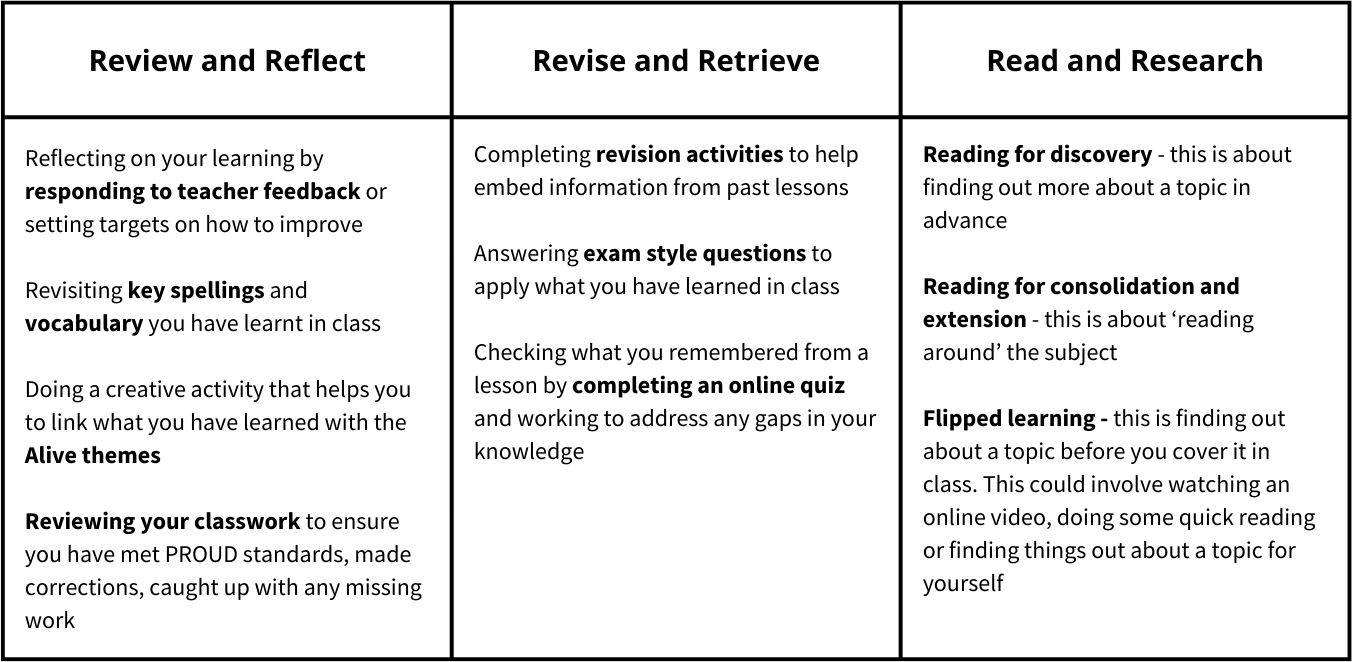MFL (French, German and Spanish) Key Stage 4
Vision
Developing confident and competent communicators who demonstrate increasing intercultural awareness and are not afraid to make mistakes and learn from them.
Curriculum Overview
In MFL we want all students to reach the end of Key Stage 4 with a sustained love of language learning. Ideally, they will be able to respond effectively to spoken and written language in at least 3 tenses with increased fluency and will have developed coping strategies to be able to respond to unfamiliar, authentic language across a range of topics. We aim for all students to be confident communicators by the end of Key Stage 4 so that they are inspired to be life-long learners. We want all students to have an appreciation of and curiosity about the Francophone/Germanic/Hispanic culture and have greater intercultural awareness.
Students will further develop their communication skills through the study of 12 units of work. These units of work build on the grammar, vocabulary, and phonics taught in KS3. Students will learn more about the culture and traditions of the Francophone/Hispanic/Germanic world, they will learn to use more complex grammar structures and tenses, such as the subjunctive. Vocabulary and grammar is recycled throughout. Students will learn to respond effectively to written and spoken language, including more complex and extended texts, extracting information, identifying opinions, inferring meaning, and drawing conclusions. Students will write effectively for different purposes, explaining ideas, expressing and justifying opinions and manipulating vocabulary and grammar.
Sequencing, Setting and Support
Students are taught content in a logical manner; more familiar topics are studied in Year 10 e.g. Self, Family, and Relationships, and more complex topics e.g. Environmental Issues are taught in Year 11. Grammar is taught in an incremental way, starting with a review of the basics from Key Stage 3 and building up complexity over the two-year course. All key structures and grammar are recycled throughout the two-year course.
Students are generally taught in mixed ability groups and teachers know their students well to adapt resources so that all students can succeed to the best of their ability. Occasionally, where class sizes and timetabling allow, students are grouped into Foundation and Higher tier classes. This enables teachers to give more targeted support in lessons and allows students to focus on specific exam strategies for the different tier papers.
Teachers know their students well and differentiate learning, so every student can succeed to the best of their ability. All students are provided with a Sentence Builder/Knowledge Organiser for each unit of work. Resources, including listening and reading materials, are adapted according to student ability. Students have 1:1 targeted support in lessons and will have small group speaking support with the Foreign Language Assistant.
Alive Themes in MFL (French, German and Spanish)
In MFL our ALIVE theme is We can Communicate. We develop this throughout Key Stage 4 by teaching students how to understand listening and reading material across a range of different topics. We also give plenty of opportunity for students to develop and practise their writing and speaking skills through individual tasks, pair work, group work, and whole class activities. There are many other ALIVE themes threaded throughout our curriculum. Please see the ALIVE audit for more details.
Assessment in MFL (French, German and Spanish)
Students complete regular vocabulary learning assignments on Quizlet or Memrise and these are self-marking. At the end of each unit, students will complete a formative assessment to retrieve knowledge and practise one of their skills (listening, reading, writing, speaking). Mock Exams will take place twice a year, in which students complete summative assessments across the four exam papers (listening, reading, writing, speaking).
Homework and how Parents/Carers Support Learning
All homework is set on Bromcom which is an app and website available to students and parents/carers. Further information is available on our Homework page.
These are the principles which underpin our homework.

Review and Reflect
- Weekly vocabulary learning homework is set on Quizlet or Memrise.
Revise and Retrieve
- Exam style questions from Kerboodle online resources (Listening, Reading, and Writing tasks) are set for homework. Students are also asked to prepare answers for general conversation and practise them aloud.
Parents can support their child with MFL homework by testing them on vocabulary after they have completed the vocabulary learning homework. It would be helpful to take a note of your child’s login details for Quizlet, Memrise, and Kerboodle at the beginning of the year. Parents can also listen to their child practise their speaking questions and answers.
Useful MFL Resources
All resources to support learning can be found on the relevant year’s Moodle area. We will also send out information about purchasing a CGP GCSE Revision workbook for MFL. The following websites are used by students for vocabulary learning:
There are also free websites to help students practise grammar and listening skills:




